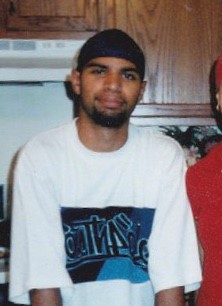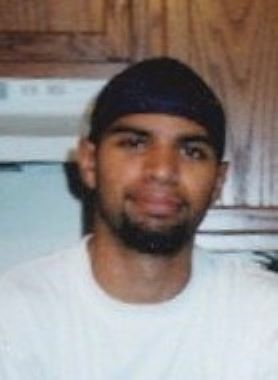Until now, 34-year-old Santos Robles kept what happened to him two decades ago in the past. But to help celebrate the 45th anniversary of Youth Advocate Programs (YAP), Inc., a community-based alternative to youth incarceration and institutionalization, he’s ready to talk. It’s his way of raising awareness of YAP and thanking the national nonprofit for helping him see his possibilities and connecting him with tools to pursue them in positive, productive ways.
A family man with four children – four-year-old twins and two bonus kids who came courtesy his girlfriend — Robles works full-time at Harrisburg Area Community College as an adviser to veterans. The campus is close to home and not very far from the Lebanon, Pa. neighborhood where he grew up. But there’s a world of difference between where he is now with his life as an adult and where he was back then, as a child.

“The first time I got arrested, I was 11. I didn’t know it, but the friend I was with at the time had robbed someone; and I ended up getting charged along with him. It was a horrible experience. It was terrifying,” Robles said. “An officer searched me and didn’t let me button and zip my pants back up. When I walked to the patrol car, they fell down to my ankles. It was humiliating. I tried to be tough, but when my mom came to pick me up, I bawled my eyes out.”
Thinking back to that time, Robles said, “I was only a child. “My daughter’s 11; and I can’t imagine her going through something like that; I look at her and — she’s a baby.”

Robles was two years old when his father left his home. “He was an addict; my mom and he got into a fight and she kicked him out.”
Robles said his mother worked two jobs to support him and his sister, who’s three years older than him. Hanging around with older boys made Robles feel special, especially when they gave him money for doing jobs, like being their lookout when they sold drugs.
After the arrest, a judge sentenced Robles to five to six years of probation. During that time, violations like being late to appointments, running away, or missing school got him into more trouble, often resulting in detention time.
“At one point, they put me in a foster home,” he said. “Then by the time I was 13, they put me in a shelter, which was a detention facility on the top floor and a group home on the bottom. I was really depressed,” he said. “When I went home, I promised my mom I wouldn’t get in trouble again; but I kept going back to hanging around the same older friends.”
When he was 15, police caught Robles with a bag of crack cocaine that he was holding for one of those friends. This time, the police accompanied him on an airplane ride to a facility in western Pa. He said the experience was a nightmare from the very beginning when he realized that checking in required a strip search.
“The officer assigned to do the searches put me in a room and told me to take my clothes off. I’m looking at this guy and I’m crying so hard. I was just a little kid.”
Robles said the officer was professional, but the experience was nevertheless traumatizing, as were so many during his two-year incarceration.
“In the beginning, I wasn’t allowed to speak; I went months without talking to other kids. I could speak to staff when it was necessary, but we had to get time behind us to earn the right to talk; it was a rule; you’re on a level system and talking was a privilege” he said.
Making it more difficult was the long distance between the facility and home. It was a six-hour drive, something his mother had neither the money nor the time to do too often.
“I did not get a lot of visits. That really sucked. We got to go home on passes, but I’d keep getting in trouble. Being locked up did not rehabilitate me.”
Robles said the most positive thing about the facility were the times he got to meet with the chaplain. He became fascinated with religion, began to learn a lot about different faiths, and started to consider that with the right opportunities, he could change.
As part of his probation when he was released at age 17, Robles became a participant in YAP, where he met Bob Swanson (now YAP Pa. and Ohio Regional Director), who soon assigned a young man named Ed Harmon to work with him as a mentor and an Advocate for him and his family.

“What was different was they treated me like a person. They cared about my interests. When I told them that I was interested in being a pastor; they linked me up with churches to talk to different pastors; they helped me find jobs,” he said.
Robles said Harmon helped him see that he wasn’t a bad person, that he was responsible and had a lot to offer. “I started feeling like others saw the good in me. I got my first job at McDonald’s. It felt amazing,” he said. “If I would have gotten linked up with YAP earlier when I first got arrested, maybe I wouldn’t have gotten into more trouble.”
After the summer when Robles went back to school, he told Harmon that some of the the influences and temptations from his earlier years were still present — that he thought it would be best to drop out and get a higher-paying job and get his GED. It’s a decision that he has never regretted.
Robles got a job at Walmart and began going to church regularly. When his pastor offered him free rent in a shed behind his family’s home, Robles took him up on the offer, cleaning it, putting down carpet and moving in furniture.
“It was my first home away from home; Ed used to pick me up from there. I moved out when I saw a big black rat that looked like a dog,” he chuckled. “I ran out the house; left all my stuff there and moved back in with my mom.”
When Robles’ probation ended, his participation in YAP was over, too.
“I still wasn’t doing the best I could,” he said. “I cried; I was convinced I’d get in trouble and go to jail. I felt really close to YAP and stayed in contact after the program.”
When he turned 18, Robles enlisted in the military. During his service, as he considered future careers, he often thought about his time in YAP with Harmon and Swanson. He wanted to do what they did – help troubled youth get back on track.
“Two months after coming home, I got a job as a YAP Advocate. It was really good to connect with the kids and have them relate to my story,” he said.
A year later, Robles used his YAP experience to get a job at Harrisburg Area Community College. It was an opportunity for him to also enroll in school and earn an associate degree.
Robles and his mother are closer than ever. He has also stayed in touch with Harmon at YAP and from time to time checks in on a few of the young people he worked with when he was an Advocate.
“The one I was closest to is now 21. He was in trouble a lot when I was working with him. His step-dad was a gang member and he’d seen a pretty rough life as a youth,” Robles said. “Now he’s working full-time at a big supply company in town. He has his own place and tells me he wants to go to the military. It’s a good feeling. I see in him the same thing Ed always saw in me.”
Robles realizes that the story of his youth is no longer a secret. He will need to talk to his children and others in his life, something he said won’t be easy, particularly because of that period of time in placement when talking was prohibited. “To this day, I sometimes still struggle to communicate,” he said.
Robles said more important than his struggles are his accomplishments and his gratitude to YAP for making them possible. “I truly believe in YAP; it’s important to keep kids home.”
YAP partners with youth justice and child welfare systems in 28 states and the District of Columbia. To learn more about the nonprofit please visit yapinc.org.



















